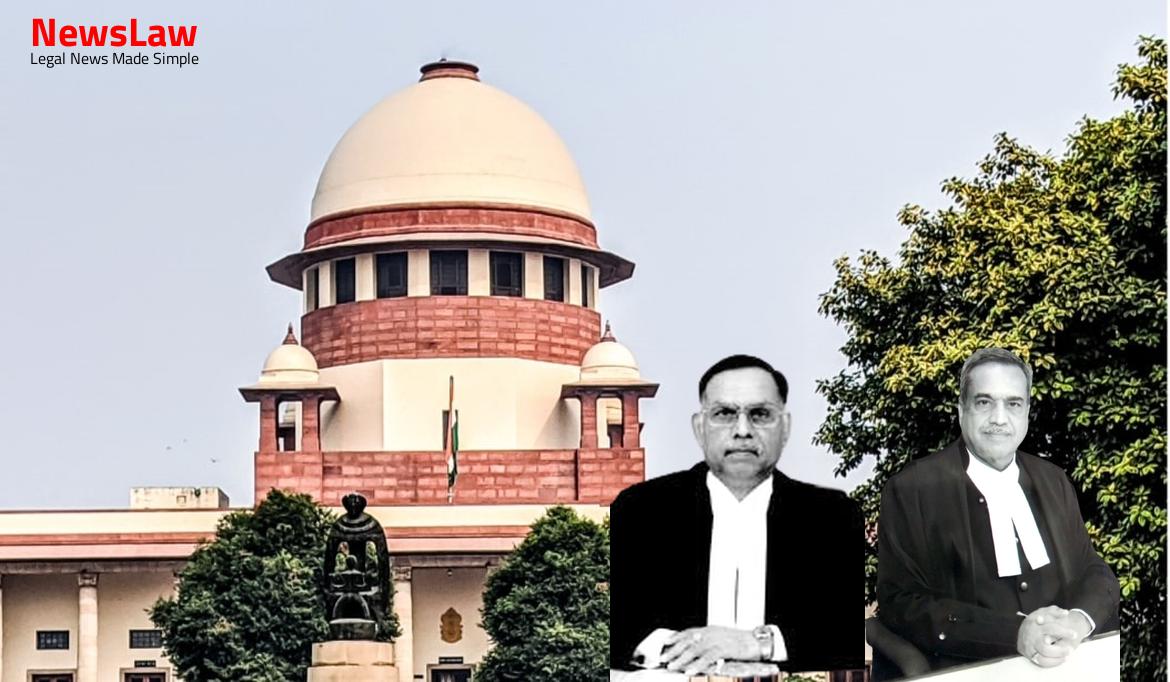Explore a thought-provoking legal case centered on the legality and ethics of spraying chemicals on human beings without proper approval. Discover how the court’s legal analysis delves deep into the violation of Article 21, emphasizing the protection of life and personal liberty in the context of public health concerns.
Facts
- National Capital Laboratory(Council for Scientific and Industrial Research) issued a joint press release on mist based sanitization for frontline healthcare professionals.
- World Health Organization advises against using ultraviolet (UV) lamps to disinfect hands and skin.
- A compliance affidavit dated 28.09.2020 reiterated the advisory against spraying individuals with disinfectants.
- An additional affidavit by respondent No.1 discussed the use of UV rays for disinfecting fruits and vegetables.
- An intervention application by Ideal Flow Pvt. Ltd. referenced a pressurized steam disinfectant chamber and an advanced disinfectant tunnel developed by IIT Kanpur.
- The writ petition filed seeks a ban on spraying disinfectants on human beings to protect against Covid-19.
- WHO declared Covid-19 a pandemic on 11.03.2020, caused by SARS-CoV-2 transmitted through respiratory droplets and contaminated surfaces.
- Director General of Health Services issued an advisory against spraying disinfectants on people for Covid-19 arrangements.
Also Read: Transfer of Writ Petitions for Chartered Accountants’ Tax Audit Guidelines
Issue
- Whether spraying or fumigation of any kind of chemical disinfectants on human beings without the approval of the relevant ministry is violative of Article 21?
- Issue raised in the writ petition
- Concerns the legality and ethics of spraying chemicals on human beings without proper approval
- Relates to violation of Article 21 which pertains to protection of life and personal liberty
Also Read: Analyzing Interference with Acquittal in Legal Conviction Case
Arguments
- Petitioner argues that self-certified disinfection tunnels with organic solutions are being produced without health authorities’ recommendation.
- Applicant claims their product has health benefits, but WHO and other agencies advise against spraying chemical disinfectants on humans.
- Applicant argues that their pressurized steam disinfectant chamber with natural oils is different from disinfection tunnels mentioned in the petition.
- Petitioner refers to advisories against using organic or chemical disinfectants on humans, despite public authorities using them.
- World Health Organization states that spraying bleach or disinfectants on the body is not effective against Covid-19 and can be dangerous.
- Union of India has not taken steps to stop the use, advertisement, and sale of chemical-based disinfection tunnels.
- No credible health agency study supports the effectiveness of human disinfection tunnels against Covid-19.
- Respondent No.1 did not issue any advisory for human disinfection through walk-in tunnels involving spraying or fumigation of chemicals/organic disinfectants.
- The product designed by the applicant uses natural oil which promotes health, not chemicals as human disinfectants.
- A review meeting on the use of disinfection tunnels held on 09.06.2020 reiterated that spraying disinfectant is not recommended in healthcare and non-healthcare settings.
- The Government of India’s role is limited to providing guidelines and financial support, with States/UTs responsible for implementation.
- The intervenor opposes a blanket ban on the use of products for human disinfection.
Also Read: Judicial Review on Sentence and Compensation in Criminal Case
Analysis
- National Executive Committee assists the National Authority in its functions and implements policies and plans
- It acts as a coordinating and monitoring body for disaster management
- Lays down guidelines for disaster management plans for Ministries and State Authorities
- Monitors the implementation of National Plan and guidelines for disaster management
- Provides technical assistance to State Governments for disaster management plans
- Coordinates and gives directions for mitigation and preparedness measures by Ministries and Departments
- Lays down guidelines for integrating disaster prevention measures into development plans
- Monitors, coordinates, and gives directions in threatening disaster situations
- Advises, assists, and coordinates activities of various organizations in disaster management
- Promotes general education and awareness in disaster management
- National Executive Committee performs other functions as required by the National Authority
- Responsibilities of Ministries include measures for disaster prevention, mitigation, and capacity building
- Integrating disaster prevention measures into development plans
- Responding effectively and promptly to disaster situations according to guidelines
- Reviewing enactments, policies, and regulations to incorporate disaster prevention measures
- Use of disinfectants like sodium hypochlorite and ethanol can lead to health issues like irritation of mucous membranes, bronchospasm, and gastrointestinal effects.
- Spraying disinfectants on individuals, including through mist tunnels, is not recommended as it can be physically and psychologically harmful.
- There is no scientific evidence to suggest that spraying individuals with disinfectants effectively disinfects outer clothing or body surfaces.
- The Act, 2005, empowers authorities to issue guidelines and take measures to prevent or regulate the use of disinfectants on human bodies to protect public health.
- The Act, 2005, places a duty on authorities to act in the best interest of the people in epidemic situations like the current pandemic.
- Improvement of public health is a paramount principle of governance as per Article 47.
- Right to Health is integral to Article 21 of the Constitution.
- The right to health is considered an aspect of social justice informed by various legal provisions and international agreements.
- The State has obligations to ensure the preservation of the right to life and health.
- In the wake of the Covid-19 pandemic, the duty to exercise powers for public benefit cannot be evaded.
- Public officers vested with authority must exercise it appropriately when circumstances warrant.
- Affirmative action in the judicial process is crucial to make remedies effective and ensure rights are not sterile.
- Justice Krishna Iyer emphasized accountability in the exercise of power and the transformation of discretion into duty when circumstances require benevolent exercise.
- The right to lead a dignified and meaningful life, including the right to health, is inherent in the right to life under Article 21 of the Constitution.
Decision
- Directions issued to respondent No.1 to consider banning or regulating the usage of disinfection tunnels with chemical/organic disinfectants for humans.
- Similar consideration and directions to be given for the exposure of human beings to artificial ultraviolet rays.
- The exercise to be completed by respondent No.1 within one month for public health concerns.
Case Title: GURSIMRAN SINGH NARULA Vs. UNION OF INDIA MINISTRY OF SCIENCE AND TECHNOLOGY (2020 INSC 635)
Case Number: W.P.(C) No.-000560 / 2020



